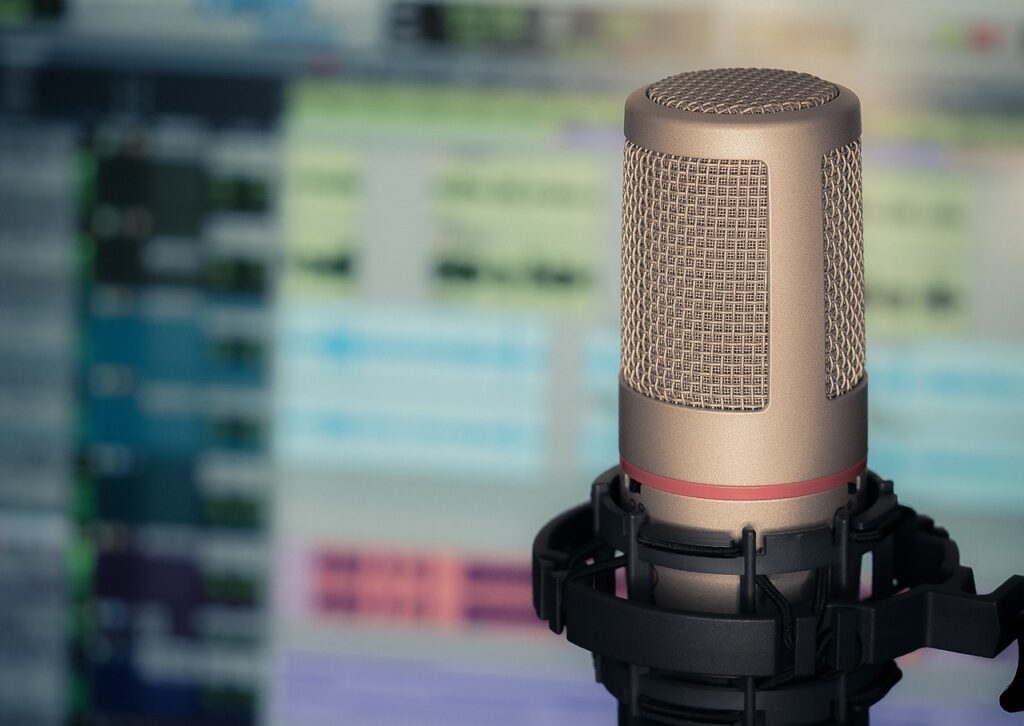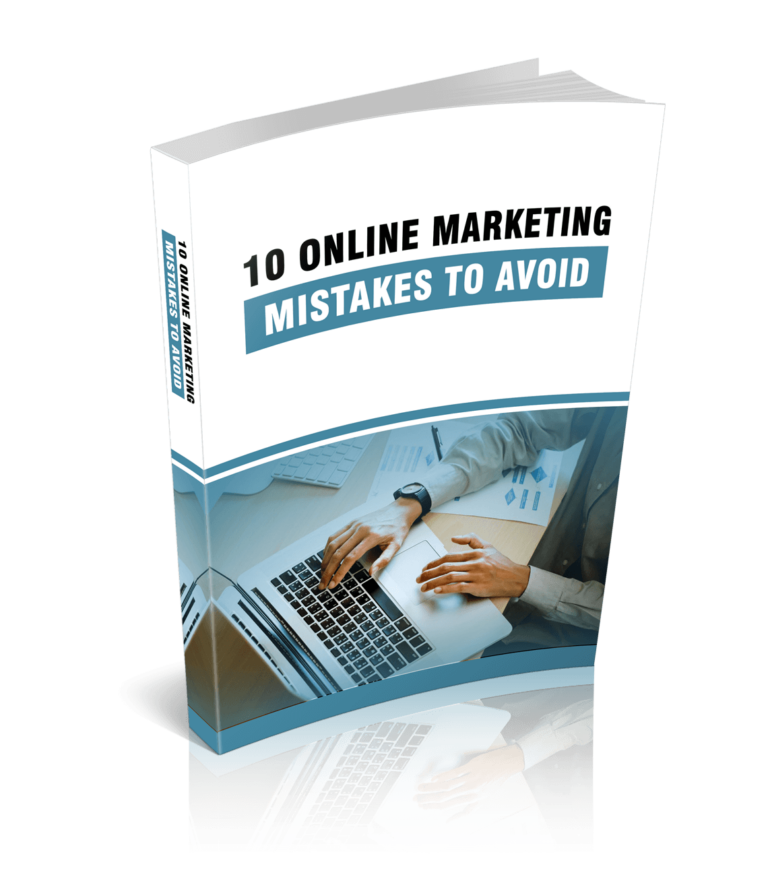Podcasting has been around for over a decade now, and has become increasingly popular in recent years. A podcast is essentially an audio show that can be downloaded and listened to at the listener’s convenience. They are usually episodic, with new installments coming out on a regular basis, and can be about any topic imaginable.
Podcasts are a great way to get information and entertainment on the go. Whether you’re commuting, working out, or just taking a break, you can listen to a podcast and have something to focus on other than the task at hand. They’re also a great way to get introduced to new topics and ideas that you might not have otherwise come across.
If you’re thinking of starting a podcast, this report is for you. Check out below 10 ways to get started.
SUBSCRIBE TO INCOME PATROL
Get updates on the latest posts and more from Income Patrol straight to your inbox.
1) Pick a topic that you’re passionate about
When it comes to podcasting, there are a lot of different ways to go about it. You can podcast about anything that interests you, and chances are, if you’re passionate about a topic, there are others out there who feel the same way. This is what makes podcasting so great—you can connect with like-minded people from all over the world and share your passion with them.
But before you can start sharing your passion with the world, you need to know a few things about podcasting. Here are some tips to get you started:
- Choose a topic you’re passionate about.
This may seem like a no-brainer, but it’s important to choose a topic for your podcast that you’re truly passionate about. Not only will this make podcasting more enjoyable for you, but it will also come through in your voice, making your podcast more enjoyable for listeners.
- Do your research.
Before you start recording, it’s important to do your research on your chosen topic. This way, you can be sure to include all the important information in your podcast. You don’t want to bore listeners with too much detail, but you also don’t want to leave out anything important.
- Find a balance.
When it comes to the length of your podcast, find a balance between too long and too short. If your podcast is too long, listeners may tune out before they reach the end. On the other hand, if it’s too short, they may not feel like they’ve gotten enough information.
- Be prepared.
Before you start recording, it’s important to be prepared. This means having all your materials ready to go and knowing what you’re going to say. This will help the recording process go smoother and will help you avoid any awkward pauses.
- Be yourself.
One of the most important things to remember when podcasting is to be yourself. This is your chance to share your passion with the world, so don’t be afraid to let your personality shine through.
Podcasting is a great way to share your passion with the world. By following these tips, you can be sure to create a podcast that listeners will enjoy.
2) Do some research
Podcasting is a great way to share your ideas and connect with like-minded people. But before you can start podcasting, you need to do some research and find out what equipment and software you need.
Here’s a quick rundown of what you need to get started with podcasting:
- A microphone – This is the most important piece of equipment for podcasting. You need a good quality microphone to record your voice clearly. There are many different types of microphones available, so do some research to find the best one for your needs.
- A digital recorder – This is used to record your podcast. You can use a standalone recorder, or you can use the recording software on your computer.
- Recording software – This is used to edit your podcast and add any additional sounds or music. There are many different types of software available, so do some research to find the best one for your needs.
- A hosting service – This is where your podcast will be stored and made available for people to download. There are many different hosting services available, so do some research to find the best one for your needs.
- A website – This is optional, but it’s a good idea to have a website for your podcast. This gives people a place to go to find out more about your podcast and subscribe to it.
Once you have all of the above, you’re ready to start podcasting! Just remember to be creative, have fun, and engage with your audience.
3) Choose a catchy and memorable name for your podcast.
Your podcast name is one of the first things people will see and hear about your show. It’s important to choose a catchy and memorable name that accurately reflects the content and tone of your podcast. Here are a few tips to help you choose the perfect name for your podcast:
- Keep it short and sweet. A long, complicated name will be difficult for people to remember and search for.
- Make it unique. There are millions of podcasts out there, so you’ll want to make sure your name stands out.
- Avoid using numbers or symbols. These can be confusing and hard to remember.
- Think about your audience. What would they be interested in? What would they search for?
- Use keyword research. Use tools like Google AdWords Keyword Planner to find popular keywords related to your topic.
- Brainstorm with friends. Get some help from friends or family members to come up with ideas.
- Test it out. Try searching for your potential name on popular podcast directories like iTunes and Stitcher. If it’s already taken, you’ll need to keep brainstorming.
4) Make sure your podcast is well-organized and easy to navigate.
Organizing your podcast is key to a successful show. Here are a few tips on how to get started:
- Choose a format for your show. This can be anything from a traditional interview format to a more conversational style.
- Decide on a topic or theme for your show. This will help you stay focused and keep your episodes interesting.
- Outline each episode. This will help you stay on track and keep your episodes flowing.
- Find guests. If you’re doing interviews, make sure to find interesting and engaging guests.
- Schedule everything. Once you have your format, topic, and outline, it’s time to schedule everything. This includes recording, editing, and publishing.
- Make it happen. The only way to get your podcast off the ground is to actually start recording and publishing episodes. So get out there and make it happen!
5) Record high-quality audio for your podcast
When you’re ready to start podcasting, one of the first things you need to focus on is recording high-quality audio. This involves using the right microphone, recording in a quiet environment, and editing your audio properly. Let’s take a look at each of these areas so you can start recording great sounding audio for your podcast.
- Microphone
The microphone you use can have a big impact on the quality of your audio. If you’re recording on a budget, you can get a decent USB microphone for around $100. Some popular options in this price range include the Audio-Technica AT2020 and the Blue Yeti.
If you have a little more to spend, you may want to consider a shotgun microphone. These are great for podcasts that are recorded in a studio or other controlled environment. They can be mounted on a boom arm and positioned so that they only pick up sound from the person speaking, which results in clearer audio. Popular shotgun microphones include the Rode NTG-2 and the Sennheiser ME66.
- Environment
It’s important to find a quiet place to record your podcast. If you’re recording at home, this may mean recording during a time when your family is away or sleeping. If you have young children, you may want to consider recording in a closet or another room that can be closed off to minimize background noise.
If you’re recording in an office or other shared space, you may want to use a recording booth or soundproofed room. This will help to minimize any ambient noise that could be picked up by your microphone.
- Editing
Once you have your audio recorded, you’ll need to edit it to remove any errors or unwanted sections. There are a number of different audio editing programs you can use for this, such as Adobe Audition, Audacity, or HindenburgJournalist.
When you’re editing your audio, be sure to remove any long pauses, “um”s, or other filler words. You may also want to add in music or other sound effects, depending on the type of podcast you’re creating.
By following these tips, you can record high-quality audio for your podcast that will sound great to your listeners.
6) Write engaging and interesting show notes
Your podcast is only as good as your show notes. Here are tips on how to make your show notes engaging and interesting:
- Keep it short and sweet.
Your show notes should be brief and to the point. No one wants to read a long, rambling blog post. Get to the point and give your readers the information they need.
- Use imagery.
People are visual creatures. Adding an image or two (or even an infographic) to your show notes can help make them more engaging.
- Use bullet points.
When possible, use bullet points to list key information. This makes your show notes more scannable and easier to read.
- Use actionable language.
Your show notes should be full of verbs that encourage your reader to take action. For example, instead of saying “In this episode, we discuss X,” try “In this episode, we’ll show you how to X.”
- Highlight key quotes.
If you have a great quote from your podcast episode, be sure to highlight it in your show notes. This helps readers remember the key points from the episode.
- Include a call to action.
What do you want your readers to do after they finish reading your show notes? Include a call to action, such as subscribing to your podcast, checking out your website, or following you on social media.
- Use keywords.
When people are searching for podcasts on a particular topic, you want your show to come up in the search results. That’s why it’s important to use keywords throughout your show notes.
- proofread.
Typos and grammatical errors will make your show notes look unprofessional. Before you hit publish, take the time to proofread your work.
7) Promote your podcast on social media and other platforms.
As a podcaster, you want to do everything you can to get your show in front of as many people as possible. That’s where promoting your podcast on social media comes in.
Most podcasters are already active on social media, so promoting your show on these platforms is a natural fit. But even if you’re not a social media guru, there are still plenty of ways to get the word out about your podcast.
Here are some tips for promoting your podcast on social media and other platforms:
- Create engaging social media posts
When you’re promoting your podcast on social media, it’s important to create posts that will grab people’s attention. A boring, generic post is not going to do anything to get people interested in your show.
Instead, try to come up with something creative and eye-catching. Use images, video, or even just an interesting headline to get people to click through to your podcast.
- Use hashtags
Hashtags are a great way to get your content in front of more people. When you use relevant hashtags, your content is more likely to show up in people’s feeds.
And when you use popular hashtags, you have a chance of being featured on the Explore page, which can expose your show to even more people.
- Run social media ads
If you really want to reach a larger audience, you can run social media ads. Facebook, Instagram, and Twitter all offer ad platforms that allow you to target specific demographics.
You can use these platforms to promote your podcast to people who are most likely to be interested in it. And you can even use ads to drive people to specific episodes or segments of your show.
- Submit your podcast to directories
There are a number of online directories where you can submit your podcast. This includes popular platforms like iTunes and Stitcher, as well as niche directories like Podbean and Blubrry.
Submitting your podcast to these directories is a great way to get your show in front of more people. And it can also help you to build up your listenership over time.
- Collaborate with other podcasters
One great way to promote your podcast is to collaborate with other podcasters. This can involve guest appearances, joint interviews, or even just cross-promotion.
When you collaborate with other podcasters, you can reach a whole new audience of potential listeners. And it’s a great way to build relationships with other content creators.
- Get involved in online communities
There are many online communities dedicated to podcasting. These communities are a great place to connect with other podcasters and promote your show.
You can also use online communities to find guests for your podcast, or even just to get feedback on your show.
- Leverage your email list
If you have an email list, you can use it to promote your podcast. Include a link to your show in your email signature, and make sure to mention your podcast whenever you send out email newsletters.
You can also use your email list to drive people to specific episodes or segments of your show. And if you have a premium podcast, you can use your email list to promote exclusive content.
- Use paid promotion
There are a number of paid promotion platforms that you can use to promote your podcast. These platforms can help you to reach a larger audience, and they can also be a great way to drive people to specific episodes or segments of your show.
Some popular paid promotion platforms include Stitcher, iTunes, and Podbean.
- Make sure your website is optimized
If you want people to find your podcast, you need to make sure your website is optimized. This means including your podcast in your website’s navigation, and making sure your episodes are easy to find.
It also means optimizing your website for search engines. This means including keywords related to your podcast in your website’s content.
- Promote your podcast offline
Just because your podcast is online doesn’t mean you can’t promote it offline. There are a number of ways to do this, including handing out business cards, flyers, and stickers.
You can also promote your podcast at live events, or even just by talking to people about it.
These are just a few of the many ways you can promote your podcast on social media and other platforms. By using these tips, you can get your show in front of more people and build up your listenership over time.
8) Seek out guests for your podcast
There are a number of ways to seek out guests for your podcast who can provide interesting and valuable content. Perhaps the easiest way is to simply ask your friends and acquaintances if they know anyone who might be a good fit for your show.
Another option is to search for potential guests online. Social media sites like Twitter and LinkedIn can be great places to find potential guests, as well as websites like Quora and forums related to your podcast’s topic. Once you’ve found someone you think would be a good fit, reach out to them and see if they’re interested in being a guest on your show.
If you’re having trouble finding guests, you can also try reaching out to guest booking agencies. These agencies work with a variety of guests and can help you find the right person for your show.
Finally, don’t forget that you can also be a guest on someone else’s podcast! This can be a great way to meet potential guests for your own show while also getting your name and your podcast out there.
9) Collaborate with other podcasters
In today’s digital world, it’s easier than ever to connect with other podcasters and collaborate on cross-promotion. By working together, you can amplify each other’s reach and grow your respective audiences. Here are some tips on how to collaborate with other podcasters:
- Find complementary shows. Look for other shows that cover similar topics or target the same demographic as your own. This will ensure that there is some overlap between your audiences, making them more likely to be interested in each other’s content.
- Reach out and introduce yourself. Once you’ve found some complementary shows, reach out to the hosts and introduce yourself. Explain what you do and why you think a collaboration would be beneficial.
- Propose a collaboration. Once you’ve made contact, it’s time to propose a collaboration. Suggest ways that you can cross-promote each other’s shows, such as sharing links on social media or featuring each other in episodes.
- Negotiate and agree on terms. Once you’ve agreed on a collaboration, it’s important to negotiate and agree on terms. Decide who will do what and when, and make sure that both parties are happy with the arrangement.
- Promote, promote, promote. The key to a successful collaboration is promotion. Make sure to promote each other’s episodes across your social media channels and website.
10) Be consistent with your podcast release schedule.
A podcast is a great way to connect with an audience on a regular basis, but only if you’re consistent with your release schedule. Here are a few tips to help you stay on track:
- Set a schedule and stick to it.
The first step is to decide how often you want to release new episodes, and then make sure you stick to that schedule. If you can’t commit to a regular schedule, it’s better to release episodes sporadically than to try to maintain a consistent schedule and fail.
- Use a content calendar.
A content calendar can help you stay organized and on track. Use it to plan out your episodes, guest list, topics, and any other details in advance. This will help you stay focused and avoid last-minute scrambling.
- Batch record your episodes.
If you find that you’re struggling to stay consistent, try batch recording a few episodes at once. This way, you can record a bunch of episodes all at once and then release them on a regular schedule. This can help you stay on track even if life gets busy.
- Delegate or outsource.
If you’re having trouble keeping up with everything, delegate or outsource some of the work. This could include booking guests, editing episodes, or promoting your show. There’s no shame in asking for help!
- Be flexible.
Life happens, and sometimes things will come up that throw off your schedule. Don’t beat yourself up if you have to miss a week or two. Just pick up where you left off and keep going.
Staying consistent with your podcast release schedule can be a challenge, but it’s worth it. These tips should help you stay on track and maintain a regular show for your listeners.
CONCLUSION
Podcasting is a great way to share your voice and connect with an audience. It’s easy to get started, and there are a number of ways to make your podcast stand out. Here are a few tips to get you started:
- Find your niche. What are you passionate about? What do you want to share with the world? Find a topic that you’re excited to talk about, and focus your podcast around that.
- Plan your episodes. Once you know what you want to talk about, it’s time to start planning your episodes. Decide on a format and structure for your show, and map out what you want to cover in each episode.
- Choose your equipment. You don’t need expensive equipment to start podcasting, but you will need a few key pieces of gear. Invest in a good microphone and recording software, and make sure you have a quiet place to record.
- Promote your show. Once you’ve recorded a few episodes, it’s time to start promoting your podcast. Share it with your friends and family, and make sure to post it in relevant online communities.
Podcasting is a great way to share your voice and connect with an audience.
LIMITED-TIME OFFER!
With LIFETIME ACCESS membership ($67) you have access to ALL exclusive materials (current and upcoming) for lifetime. We create new courses, ebooks, webinars and downloads on a regular basis. This offer expires soon and will be replaced with monthly-paid subscription, so hurry up! Get access HERE!





